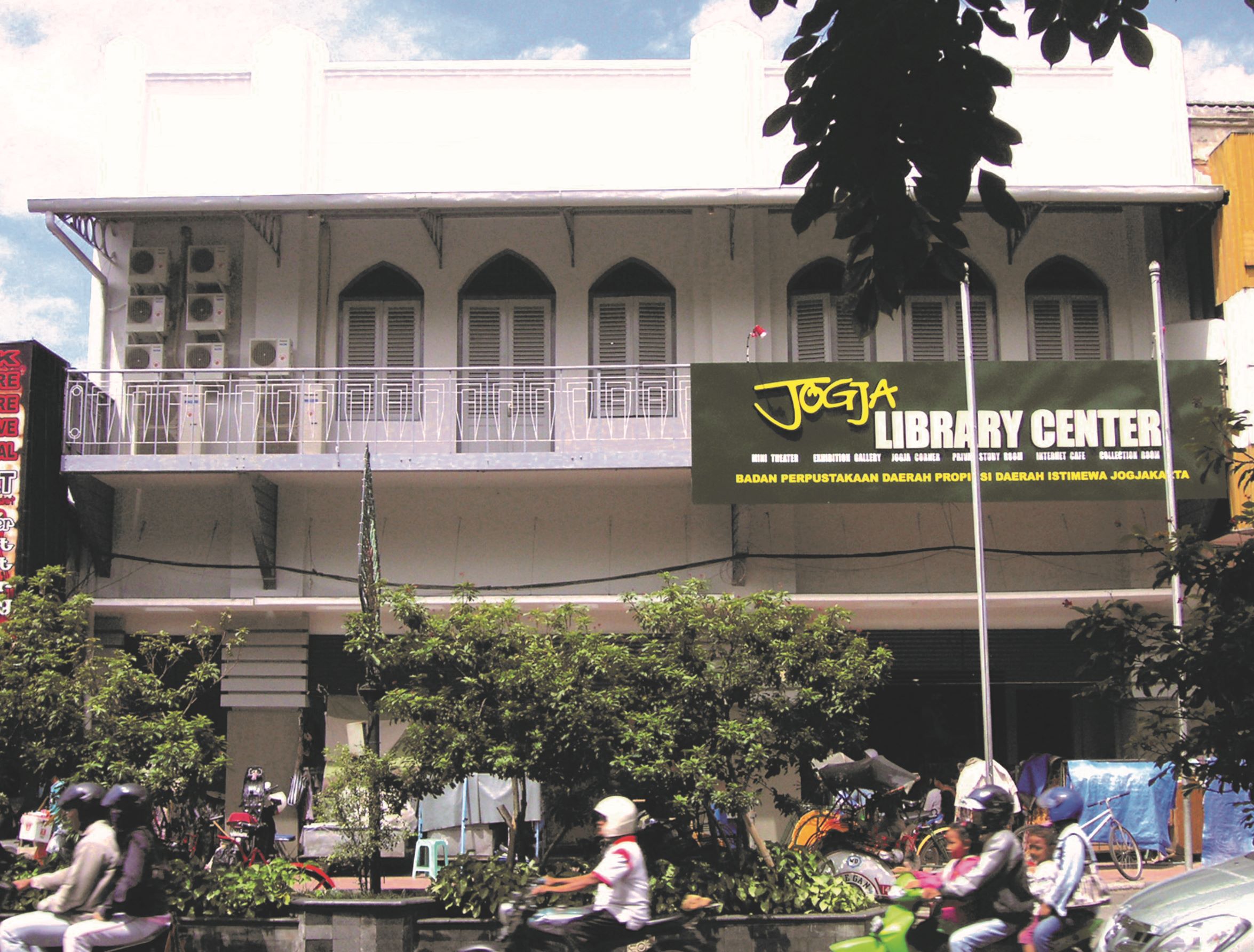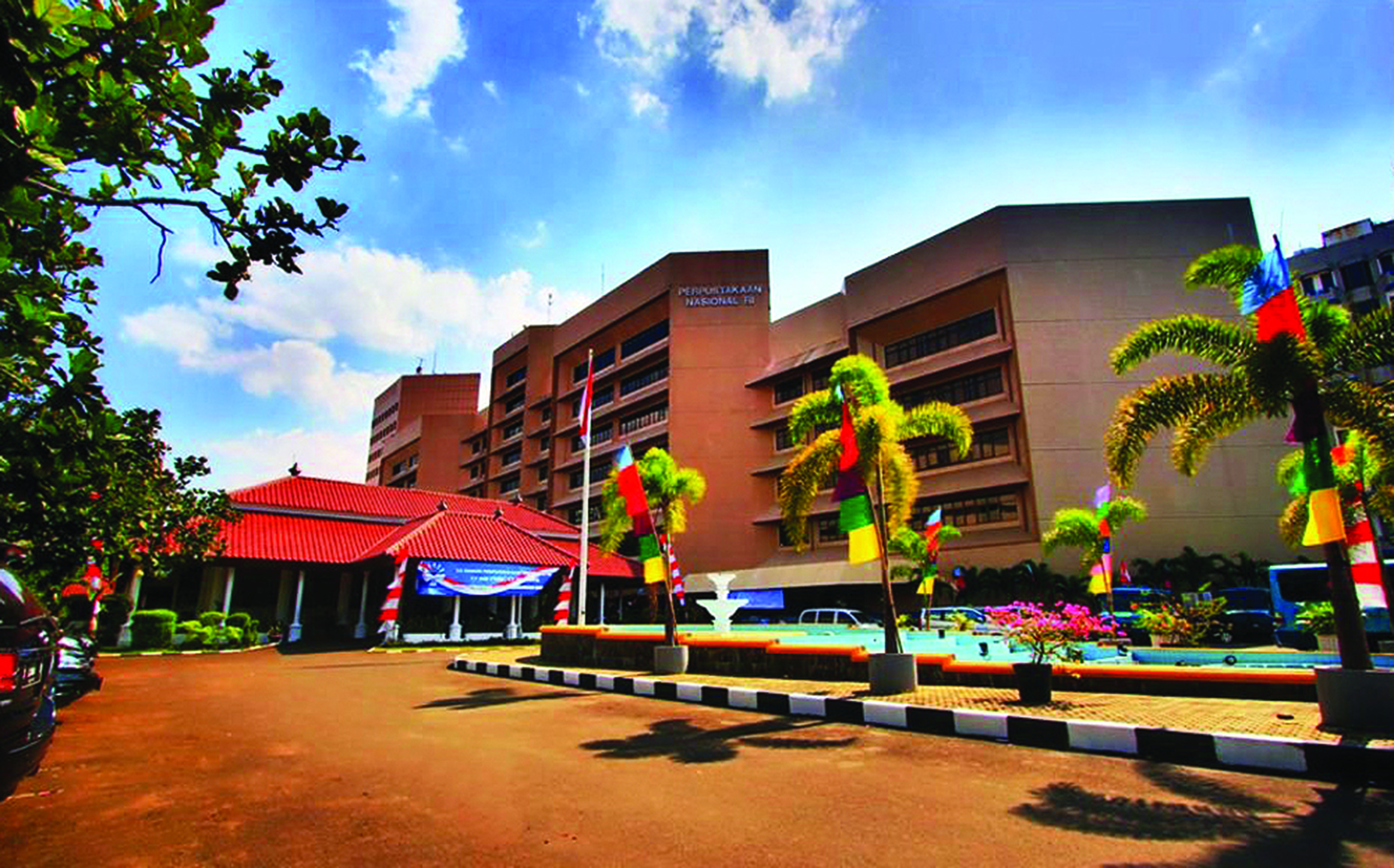Library Networking In Progress: The Jogja Experience
Yogyakarta is home to several institutions of higher education and their libraries. As part of its efforts to encourage sharing of information and resources, the city has implemented Jogja Library for All.

One of six provinces on the island of Java, Yogyakarta is home to a wealth of objects and rich history originating from the era of the Mataram Sultanate in the 17th century. Centred in the Kotagede District, the birthplace of Yogyakarta, the sultanate was born from a fusion of the former Yogyakarta Sultanate and the Kadipaten Pakualaman, which was part of the disintegrated Kingdom of Mataram.
This region once played an important role in Indonesian politics when Indonesian leaders moved the seat of the government from Jakarta to Yogyakarta in January 1946. The Dutch army subsequently attacked and seized Yogyakarta in December 1948 and arrested key Indonesian leaders. In March 1949, the Indonesian national army launched an offensive and was able to wrest the city from Dutch control for a short-lived six hours. This, however, triggered a sequence of events that eventually saw Indonesia gaining independence from Dutch colonial rule in December 1949.
Yogyakarta was conferred a special status, and is referred to as Daerah Istimewa (Special Region) of Yogyakarta, DI Yogyakarta, or DIY. However, this area is more commonly known as Yogyakarta City, Jogjakarta, or Jogja for short. Whatever its name, this province with the second-smallest area after the Special Capital Region of Jakarta not only enjoys a preeminent position in Indonesia but is also a popular haunt for international tourists.
Jogja: The Education City
With its magnificent palaces, temples, coastlines, rich art and culture, diverse nature and delicious food, Jogja is usually thought of as a tourist destination, second only to the more famous province of Bali. No less important is the title it bears as a city of education, or a city of students. With its unique position as Indonesia’s centre of cultural education, Jogja is shaped by the mix of students that come from various regions of Indonesia or even from other countries.
Supported by its peaceful natural environment, friendly locals and relatively lower cost of living compared to other Indonesian big cities, Jogja is the preferred choice for students pursuing higher education. Statistically, 20 percent of its over 3.5 million productive inhabitants are students who are enrolled in its approximately 137 state and private universities, according to a 2011 survey. A a city known for “training and disciplining” prospective leaders of the nation, Jogja boasts an academic atmosphere that encourages study, teaching and personal development.
Jogja sees the university library as playing a vital role in supporting its study and teaching initiatives. In order to meet the information needs of the academic community, including faculty members and students, every library in Jogja is obliged to supply information resources to all levels, from undergraduate to postgraduate studies and, of course, for academic staff. In addition, the library should make reading rooms available for its users, especially for those completing their doctorate studies. Beyond that, the library has to provide an effective circulation service for different categories of users, and an active information service for tertiary students, local industrial institutions and other interested parties.

All these matters are regulated under the Library Act of 2007, particularly university libraries whose roles, tasks and functions are to be implemented effectively and transparently. The aim of a university library is in essence to support its parent university. This can only be achieved through the collections, resources and services offered by the library.
Resource Sharing
Few libraries in the world – even the renowned Library of Congress, British Library and Russian State Library – would claim to have the most complete collection. While national libraries act as repositories of all national imprints, in practice, it is almost impossible for any library to obtain every printed or written publication in its land, much less acquire documents that are published in other countries. Thus, every library needs to make use of their existing collections and collaborate with other libraries to provide a satisfactory level of service to its users.
While it is true that compiling national publications is not the task of a university library, to a certain extent it also illustrates how a library should work. A library cannot work alone when developing a library collection. Working in partnership with other library institutions will help provide the most efficient service, especially for small libraries whose ability to build a comprehensive collection of books and resources is rather weak. This resource sharing programme will be effective if each library is able to provide information about its collection to all libraries in the area. In the past, the contents of a union catalogue of books would be updated manually by librarians on a regular basis. However, rapid developments in technology has changed how such work is done.
Today, information technology has taken over this manual exercise by accelerating the speed at which the union catalogue is updated. Information technology has enabled libraries to share information and facilitate the utilisation of common information resources that are administered by a library network. Moving in this direction, the setting up an integrated network is the main objective of library cooperation in Jogja. The initiative will compile information from all libraries in the region so that the public will have easier and quicker access to resources they need with just a few clicks of the mouse.
Jogja promotes its wealth of information through the library collections of the universities and colleges within the region. Through this common online catalogue, whose information can be accessed openly, it is hoped that all students in Jogja, regardless of their institution, will be encouraged to access the collection via the internet. The availability of a collection that is physically accessible paves the way for the next step, the interlibrary loan scheme. This library network is formally known as Jogja Library for All.
Jogja’s Library Network
Jogja Library for All, JLA or Jogjalib, is in essence a government project, represented by the Jogja Provincial Library, with the purpose of making Jogja a province-city known for the quality of its educational institutions. It is also hoped that the JLA will solidify the interlibrary network and serve the information needs of the public. This idea was emphasised by the Governor of Jogja, Sri Sultan Hamengku Buwono X, during the official unveiling of JLA in November 2005.
The early stage of the project saw an agreement that led to the formation of a library cooperation network called the Jogja Library Network. The network in this pilot project consisted of four university libraries in Jogja, the libraries of Gajah Mada University, State University of Yogyakarta, University Islam Indonesia and Institute of Arts Indonesia. To facilitate the project, the provincial government allocated a sum of five million rupiah and donated a computer and the necessary software to each of the four university libraries. These libraries were tasked to formulate regulations, procedures and interlibrary loan requirements of the JLA, which were in turn supervised by the Provincial Library.
In addition to the JLA programme, there was a continued collaboration with “Friends of the Library”, which supported a range of library activities in Jogja. This partnership was marked by the signing of a memorandum of understanding between the Provincial Library and several institutions, namely, Bank Tabungan Negara and Bank Pembangunan Daerah (both local Indonesian banks), Lembaga Pendidikan Bahasa Asing lia Yogyakarta (Institute of Foreign Languages) and the publishing houses Kanisius, Erlangga and Adicita. This alliance focused on the formation of libraries in non-governmental and private and public institutions. The initiative was in tandem with the directive issued by Indonesia’s President Susilo Bambang Yudhoyono during the ceremony commemorating the 26th anniversary of the National Library of Indonesia on 17 May 2006.

The JLA will eventually link up with the Indonesian Digital Library Network (IDLN). The IDLN aims to be all-inclusive and its main purpose is to facilitate information access among educational and research institutions in the country, and to coordinate local networks operating in the provinces. Every user will be able to access a number of academic papers online, such as final assignments, dissertations, research reports and scientific articles, etc. The network is also expected to provide information via text, audio-visual means, and various multimedia that can later be developed for distance learning. The contents of the e-library are available online (www.jogjalib.com) or offline through CD-roms.
The array of information and scientific sources that are presently scattered across Jogja can be digitally unified into a single database. Meanwhile, library materials in their physical printed forms can be acquired through the interlibrary loan facility. The integration of information sources will indirectly bring the library closer to the community. The era of the library passively waiting for users to visit, no matter what inconveniences they faced in travelling to the library, is long gone. In order to bring the library to the people, the Provincial Library has introduced mobile library services. These mobile facilities, commonly abbreviated as MPK, has been expanding since 2004 as part of the National Library of Indonesia’s grant to all provincial libraries and selected district and municipal libraries. In addition, in 2006, the National Library developed an electronic mobile library prototype. This facility does not house reading materials like a conventional mobile library, but instead provides computers, software and internet connection. Launched in 2007, three such vehicles (popularly called pusteling) have been built, and the main objective is to help schools develop their multimedia and internet curriculum. For the time being, these mobile libraries are limited to the Jakarta area, but in time to come the National Library plans to provide more of such vehicles and help expand the activities of libraries in other Indonesian provinces and municipalities.

Presently, the collections of libraries in Jogja are of uneven quality: some are very advanced and hold ample digital information sources, while others only possess rudimentary printed materials. Each library has different automation software and unfortunately not every program is marc-compatible. JLA hopes to bridge these gaps by maximising the use of information sources and disseminating their contents. As a start, steps are being taken to list bibliographic databases of libraries in Jogja in order to create a comprehensive union catalogue. In the future, participating libraries will include not only university libraries but also school libraries, public libraries and special libraries. These libraries will submit their collection information to be included in the consolidated database. Finally, in order to have access to this database, users who are registered members of the JLA network will use newly developed chip-embedded smartcards capable of storing a multitude of data. The smartcard user will gain easy access to all libraries without having to undergo complicated administrative procedures.
The establishment of the Jogja Library Council in 2005 has further strengthened Jogja’s vision of building a national centre for education by 2020. The council’s main task is to guide libraries and help create an international library system that will help bolster Jogja’s reputation as a city of education. This is line with the larger e-government initiative spearheaded by the governor of Jogja, Sri Sultan Hamengku Buwono X, who has urged all government agencies and private companies to cooperate in a partnership scheme to implement and promote information and communications technology across all sectors in the province. Thus, in time to come, Jogja’s vision to become a national centre for education will be achieved, and JLA will be one of the key players at the forefront of this new technology.
Future librarians will be adept individuals who will come to be seen as subjects of information, instead of becoming objects of information.
Presently, JLA is moving towards developing m-Lib (mobile librarianship), which allows the use of mobile devices to access information within the network. In a sense, this mobile access will act as a sort of library, a classroom or a workplace without walls, or even a country without boundaries. In the long term, JLA will expand and encourage information technology education, with the aim of having “one school, one computer laboratory” at all elementary and secondary levels in the next five years. To help create a library with international standards, qualified and trained personnel are urgently needed, specifically those with a proficiency in library science, English language and information technology. Future librarians will be adept individuals who will come to be seen as subjects of information, instead of becoming objects of information. Through information technology, it is hoped that the quality of teaching and education will improve over time.
Epilogue
Yogyakarta is a province-city that wears many hats: it is a city of art, tourism and education, and it is home to people of different ethnic groups, faiths and ancestries, all living harmoniously and forming the city’s distinctive cultural character. The catchphrase “education city” will become a trademark of Jogja, as hundreds of universities and colleges flourish here. Two of its reputable universities, Gadjah Mada University and University Islam Indonesia, are among the oldest universities in Indonesia. According to the Central Statistics Agency, Jogja is ranked as one of the top five provinces in the Indonesian Human Development Index in terms of life expectancy, education, literacy rate and standard of living. It is therefore only natural that Jogja should be a model for Indonesia’s other 33 provinces. It is hoped that cooperation between universities and the government and private sectors through the institution of the library will help produce a skilled and educated labour force that will help advance the overall development of Indonesia.
REFERENCES
Ida, F. Priyanto. (2010, October 28). Implementasi teknologi dan informasi untuk pengembangan Jogja Library for all [Paper presented at Evaluasi dan Tindak Lanjut Jogja Library for All].
Ikmal Hafzi. (2009, May 30). Masalah pengembangan perpustakaan di Provinsi DIY [Paper presented at Rapat Koordinasi Dewan Perpustakaan Provinsi DIY].
Joko Prakoso. (2009, December 8). Kebijakan PemProv DIY dalam pengembangan program layanan terpadu Jogja Library For All [Paper presented at Evaluasi Jogja Public Access Network].
Lilik Kurniawati Uswah. (2012, 16–18 October). Jogja Library for All: Dari konsep ke mobile [Paper presented at Konferensi Perpustakaan Digital Indonesia (KPDI)
Paradigma baru BPAD. (2011, September 14). Paper for Rapat Koordinasi Badan Perpustakaan dan Arsip Daerah DIY.
Umi Proboyekti. (n.d.). Jogja Library for all: Sebuah evaluasi untuk pengembangan dan kesinambungun [loose paper].

